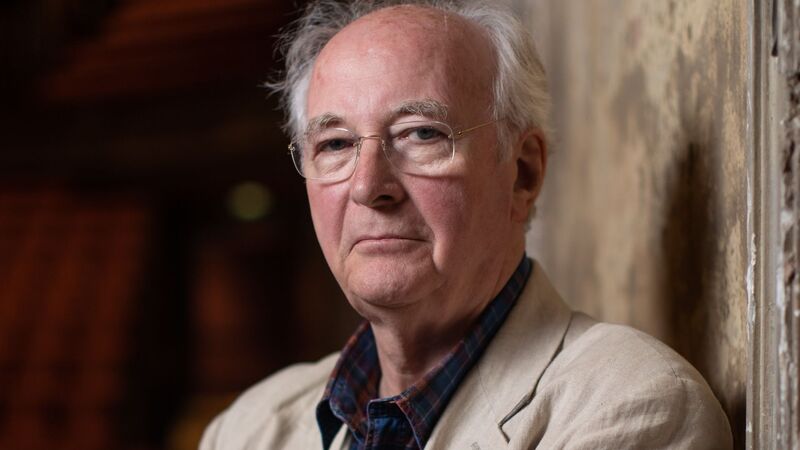You are viewing your 1 free article this month. Login to read more articles.
Pullman welcomes EC proposals on 'unjust' author contracts
The European Commission (EC) released a new raft of proposals for copyright reform as part of its Digital Single Market (DSM) strategy yesterday (14th September), with one clause suggesting that authors should have the opportunity to renegotiate contracts where renumeration is “disproportionately low” relative to publishers’ revenues.
Phillip Pullman, president of the Society of Authors, welcomed that suggestion from the EC's Digital Single Market strategy proposals, designed to create a “fairer and sustainable marketplace for creators” in the digital age, and called on the UK government to adopt them into British law despite the nation’s decision to Brexit.
Better known as the “bestseller clause”, if adopted, the “safeguard” will address situations where authors are paid a flat fee, irrespective of how many copies it goes on to sell, which can occur in some areas of the trade such as educational publishing. The “rumination adjustment mechanism” has also been recommended because many authors' contracts are "of long duration,” the EC document said.
The EC’s proposals have also called on publishers to provide regular, timely, adequate and sufficient information on the exploitation of their works, including details of the modes of exploitation, revenues generated and remuneration due, which have also been welcomed by the Society of Authors.
Pullman said: “I welcome this draft directive, especially for its emphasis on transparency and the bestseller clause. Authors badly need the sort of natural justice that these clauses embody, not least because our work contributes substantially to the wealth of the nation. I hope that our government will see the rightness of these proposals and embody them firmly in the law of our land to ensure that they continue when we leave the EU.”
Chief executive of the Society of Authors, Nicola Solomon, who has campaigned to make authors’ contracts fairer, echoed Pullman’s endorsement of the EC’s proposals, calling it “very good news”.
“Publishers too often fail to give their authors full information on sales and exploitation of their work,” she said. “Many more gain an unfair windfall when a work is an unexpected success but do not share any of that gain with authors. Having provided evidence of such unfair contract terms to the commission we are delighted that the EU accepts there is a problem and is suggesting sensible and proportionate measures to improve the position for creators. We believe these provisions will help avoid unfair practices that currently prevent authors making a living from writing. We will be pressing the UK government to implement these clauses without delay."
The proposals also aim to “increase cultural diversity in Europe and content available online, while bringing clearer rules for all online players”, according to the EC.
As such, the new rules act as “tools for innovation” for educational and cultural institutions, by helping them to “digitise out-of commerce works”, such as books which are protected by copyright but are no longer available to the public. The Federation of European Publishers said the directive's stance in favour of "negotiated solutions" in this area was particularly important for the book sector.
"I know that cultural institutions and educators will want to use these books to achieve their purposes," said the FEP president Henrique Mota. "I am happy they want to use the books I publish. And I am happy to negotiate fair and affordable licences. Hopefully, a modernisation of copyright will encourage licensing over exceptions. I am counting now on the parliament and council to achieve a balanced proposal."
The EC proposals recognised too that copyright exceptions - an area of concern in previous discussions - can deprive both publishers and authors of revenues. As such, it proposed where harm is caused by an exception or limitation that publishers should be entitled to claim compensation and the burden to back up the claim “should not exceed what is required under the system in place,” in the document. The FEP said it was "encouraged by" the provision. "In view of the publisher’s essential role in the publication and dissemination of works created by authors, such a recognition of the harm caused by exceptions is absolutely crucial," it said.
Overall the Publishers Association welcomed reforms, the first to EU copyright since 2000, calling it “a sensible set of proposals which recognises the role of both publisher and author within the copyright framework”. However, it said it was “disappointed” proposals have not included any “related right for publishers”, which would confirm that publishers own rights are not necessarily derived from authors. Such "related rights” already exist in industries such as music, but this was not extended to book publishers as part of the new draft legislation, despite being consulted on during March-June this year.
The trade body for publishers added that the proposals were “the beginning of a process” and said it wanted to see “greater clarity” as well as "a stronger evidence base as to why certain changes are needed at all”, without referring to which changes specifically.
Stephen Lotinga, chief executive of the Publishers Association, said: “This is a sensible set of proposals which recognises the role of both publisher and author within the copyright framework.
“In a number of areas such as education and text and data mining the commission has listened to the concerns of businesses and the UK government on the need to balance any further copyright exceptions for public policy reasons with a recognition of the legitimate interests of rightsholders, with the UK framework being regarded as best practice.
“These proposals are of course the beginning of a process and we will want to see much greater clarity about the exact intention behind certain definitions and a stronger evidence base as to why certain changes are needed at all.
It is also disappointing that the commission choose not to extend the publishers related right to all types of publishers without any real explanation.
“Our main ask to the commission was to ensure that whatever reforms were proposed at an EU level would still enable the strong UK system to continue and we believe that has been achieved in the main here.”
EC president Jean-Claude Juncker stressed in his State of Union address yesterday (14th September) there would be no distinction made between print and digital, saying he wanted fair remuneration for journalists, publishers and authors’ work regardless of where content is made - “in studios or living rooms” - and "whether it is disseminated offline or online, whether it is published via a copying machine or commercially hyperlinked on the web”.
Other major proposals outside the print publishing sphere include helping rights holders to secure a better deal from video-sharing platforms like YouTube, as well as tasking these platforms to "deploy effective means such as technology to automatically detect songs or audiovisual works”. The latter requirement risks helping to cement YouTube’s position as market leader, according to a report by the Financial Times.
The FT’s report on Sunday (11th September), based on leaked drafts, also showed proposals were met with criticism from some politicians and the media, with responses it said ranging from “lacks ambition” to "100% bonkers”.


















